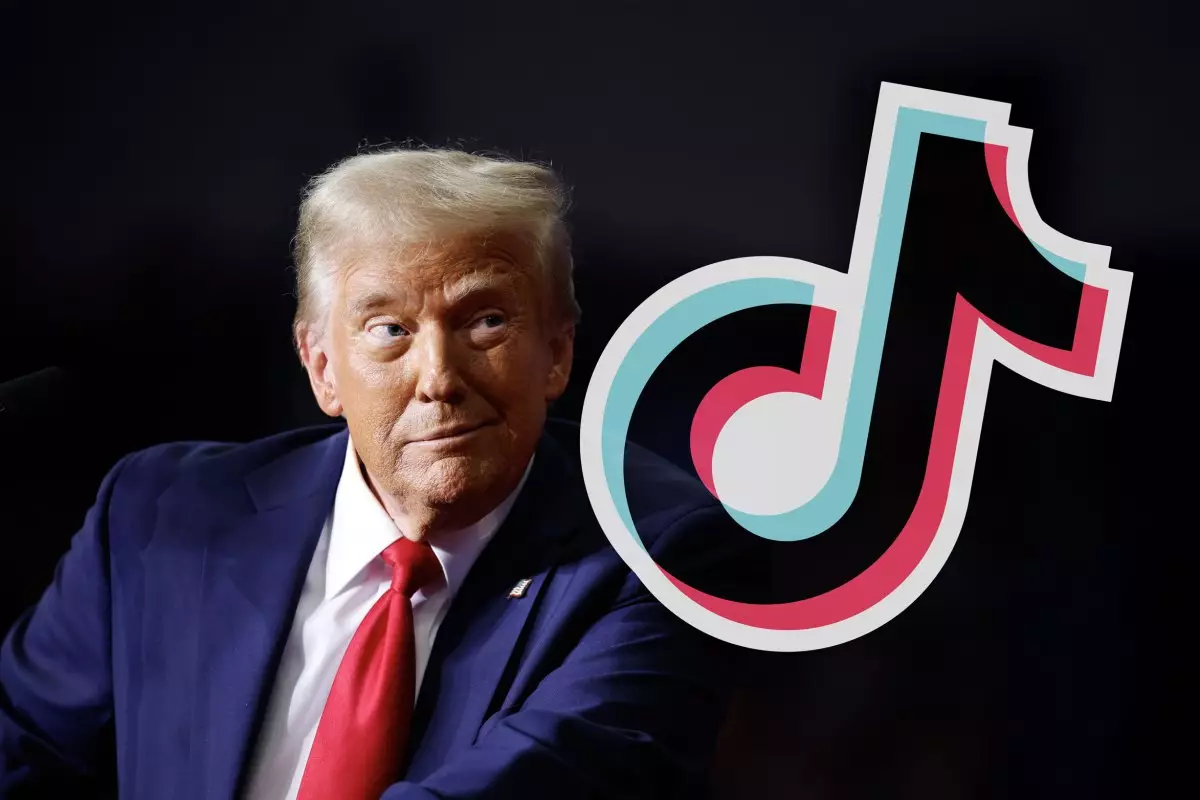In an unexpected turn of events, President Donald Trump has opted to extend the controversial ban on TikTok for an additional 75 days, a move that reflects both strategic maneuvering and the intricate web of international relations. This decision not only impacts users who depend on the platform for entertainment and communication but also involves complex negotiations centered around national security and corporate interests. TikTok, the Chinese-owned social media giant, has captured the minds and thumbs of millions across the United States. Yet, its looming ban illustrates the tension surrounding Chinese technology companies in America.
This extension demonstrates a temporary reprieve rather than a complete solution. Trump, in a post on Truth Social, emphasized the “tremendous progress” made in striking a deal that would allow TikTok to remain operational in the U.S., but questions linger regarding the intentions behind the executive order. Will the administration merely delay the inevitable, or is there an underlying strategy aimed at future diplomatic relations?
The Deal-Making Dynamics
The President’s decision hints at an evolving bargaining process with potential American buyers eager to acquire TikTok’s U.S. operations. A group of high-profile U.S. investors—including Oracle, Blackstone, and Andreessen Horowitz—recently submitted a proposal that seemed to catch the Trump administration’s attention. Such a deal, however, is not merely a corporate acquisition; it embodies wider implications for U.S.-China relations. The necessity for Chinese government approval adds a layer of complexity that cannot be overlooked.
Trump’s insistence on negotiating while upholding national security reflects a dual-edged sword. It’s not just about the app; it’s a contest of economic might and geopolitical posturing. While there are legitimate concerns about data privacy and potential espionage, these issues are intertwined with broader goals of American competitiveness. Achieving a fair deal would require navigating the murky waters of international law, corporate interests, and diplomatic relations, all of which are influenced by the shifting tides of political sentiment.
A Tension-Fueled Tariff Tango
Just days before his TikTok announcement, Trump implemented extensive tariffs on Chinese imports, signaling a breakaway from cooperative economic policies that had characterize U.S.-China relations under previous administrations. Following the imposition of these tariffs, China’s retaliatory measures could further complicate the ongoing negotiations regarding TikTok. By coupling trade disputes with the TikTok saga, Trump is unleashing economic pressures that may shift the balance of negotiations.
In his comments about wanting “to continue working in Good Faith with China,” Trump walks a line that few can tread—balancing the tightening leash of economic sanctions with the desire for fruitful negotiations. This tariff strategy is a noticeable shift in tactics. While taxes on Chinese goods could strengthen American manufacturing, they also risk alienating U.S. consumers by elevating prices and limiting choice—a pivotal gamble in an election year where consumer sentiment can swing outcomes.
Engaging Public Sentiment and National Security
The public’s relationship with TikTok complicates the narrative. For many, particularly the younger generations, the app is a mainstream avenue for creativity and community engagement. Thus, Trump’s executive order, while politically strategic, may not resonate well with the very demographics he aims to win support from. The administration’s focus on national security must align with public interests to ensure legitimacy.
Calls to preserve TikTok can be seen as an acknowledgment of its significance in American culture, suggesting that any ban would inevitably meet public resistance. The question remains whether this tech talk is genuinely about safeguarding national interest or if it’s simply a strategic presage to position Trump favorably in the eyes of a divided electorate. It’s a complicated web of policies where the stakes are soaring high.
Trump’s extension of the TikTok ban captures the zeitgeist of contemporary international politics. It unveils the blend of economic bargaining, national security concerns, and public sentiment, encapsulating a moment where technology, geopolitics, and individual liberties intersect dramatically. The next 75 days may not just shape TikTok’s fate but could also redefine U.S.-China relations in years to come.

